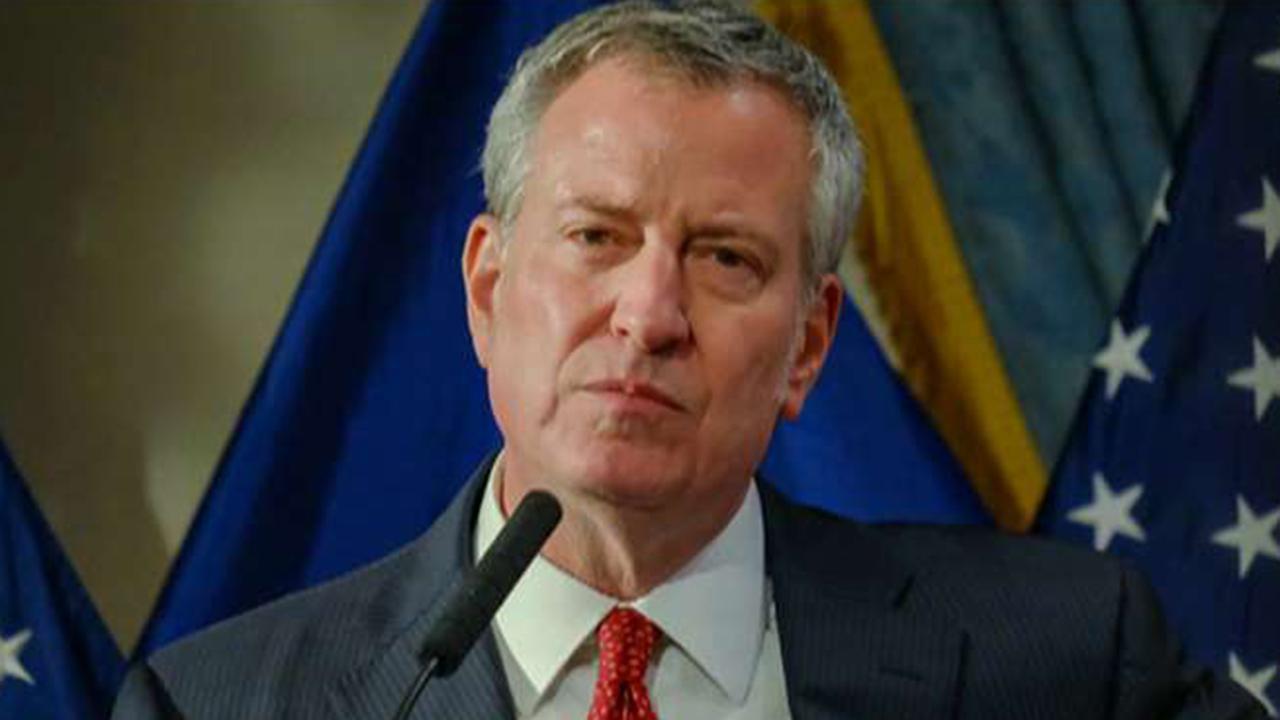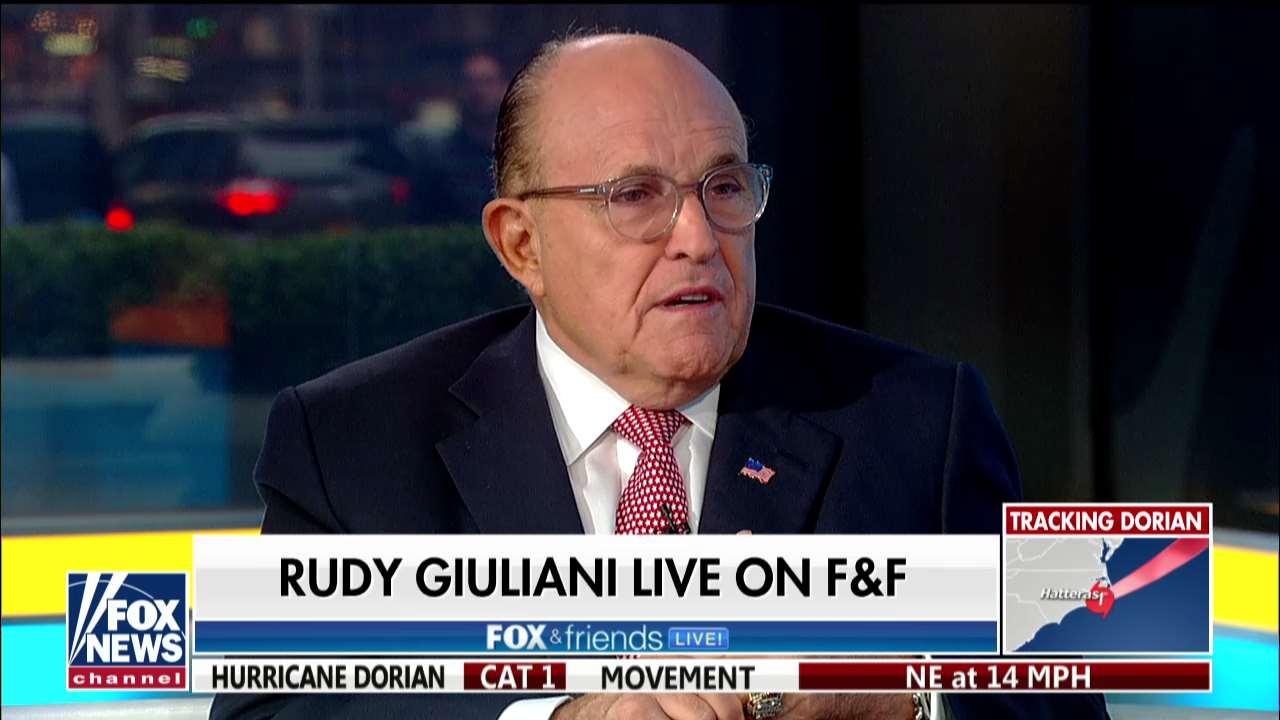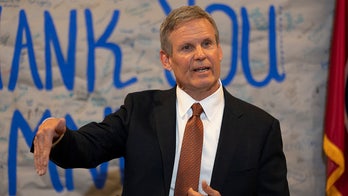New York City Mayor Bill de Blasio on dramatic increase in COVID-19 cases in New York
The COVID-19 pandemic will be with us for many, many months, says New York City Mayor Bill de Blasio.
New York City Mayor Bill de Blasio has been involved in local politics for nearly two decades, but has seen his national profile rise in recent years through his short-lived 2020 presidential campaign and his handling of the coronavirus crisis.
The 58-year-old Manhattan-born, Cambridge, Mass.-raised politician held his first seat in public office when he was elected to the New York City Council, representing the 39th District in Brooklyn in 2002.
He held the post until 2009 and then went on to serve one term as a public advocate before he was elected to mayor of the Big Apple in 2013. He was reelected in 2017.
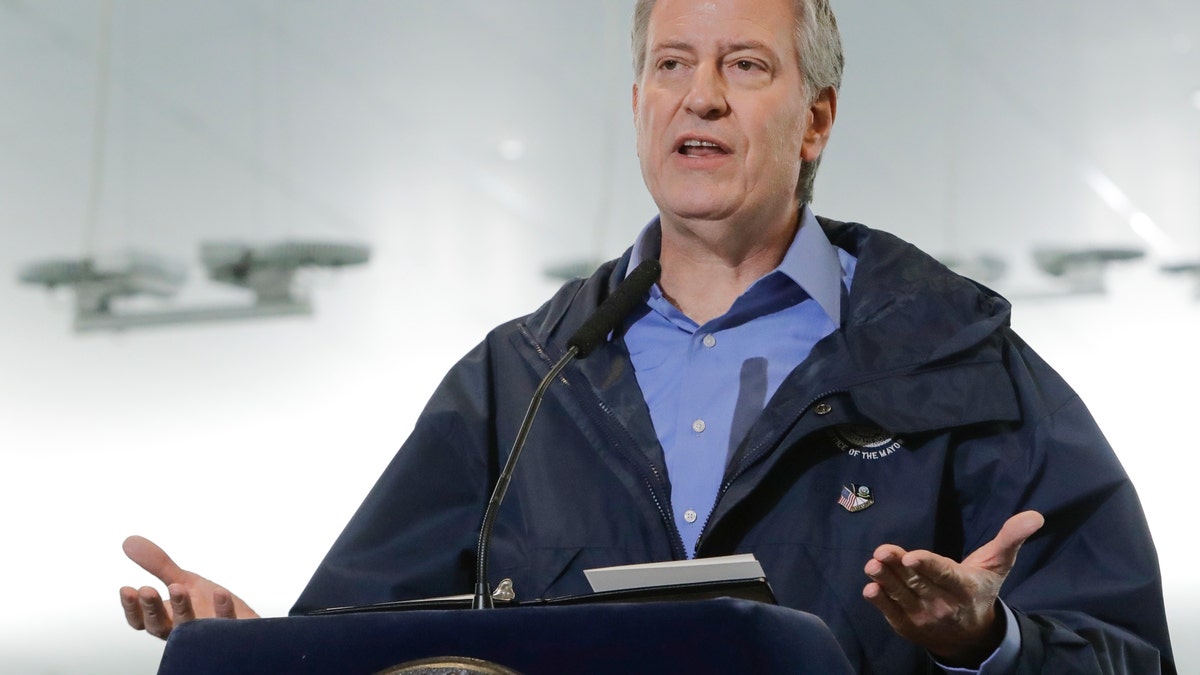
New York City Mayor Bill de Blasio speaks at the USTA Indoor Training Center where a 350-bed temporary hospital will be built Tuesday, March 31, 2020, in New York. The new coronavirus causes mild or moderate symptoms for most people, but for some, especially older adults and people with existing health problems, it can cause more severe illness or death. (AP Photo/Frank Franklin II)
Currently, de Blasio’s handling of the coronavirus outbreak in his city has been called into question as he has been overshadowed by his rival in the governor’s office, New York Gov. Andrew Cuomo.
DAS BLAST DE BLASIO AS VIOLENT OFFENDERS SET FOR RELEASE FROM RIKERS DESPITE MAYOR'S PROMISE
Here are some things to know about de Blasio:
He was born Warren Wilhelm Jr.
The mayor wasn’t officially “Bill de Blasio” until January 2002 when he changed his name not too long after becoming a member of the New York City Council. It was not the first time he changed his identity, according to the New York Daily News.
De Blasio was named after his father, Warren Wilhelm Sr., but decided to change it the first time in 1983 to Warren de Blasio-Wilhelm, to honor his mother’s Italian heritage. His mother’s maiden name was Maria Angela de Blasio.
In the early 1990s, he began using the name Bill de Blasio and officially changed it after a judge’s approval in 2002.
Racked in the cash -- and got fined for it
In de Blasio’s first mayoral race, he received nearly $10.6 million in contributions, which -- according to the New York City Campaign Finance Board -- were made in an average of $862 contributions. For his most recent mayoral campaign, he received $12,400 from liberal megadonor George Soros and his sons, Robert and Alexander.
However, in 2016, de Blasio was fined nearly $48,000 by the city’s campaign finance board for failing to report transactions, accepting over-the-limit contributions and taking contributions from unregistered political committees.
Ran in the 2020 presidential campaign
Just two years into his second term as New York City's mayor, de Blasio set his eyes on higher office, throwing his hat into the heavily crowded 2020 Democrat presidential primary race.
“As president, I will take on the wealthy, I will take on the big corporations. I will not rest until this government serves working people,” he said in a campaign kickoff video. “Donald Trump must be stopped. I’ve beaten him before, and I will do it again.”
De Blasio’s attempt to challenge to become the Democratic Party’s nomination fell short and a few short months later, he dropped out of the 2020 race.
Coronavirus response has been filled with missteps
As the growing COVID-19 pandemic continues to take root in other parts of the world, the United States tracked the warning signs of the same spike on American soil.
According to Politico, New York City Health Commissioner Oxirir Barbot urged de Blasio to begin taking more drastic action to control the spread of the deadly virus.
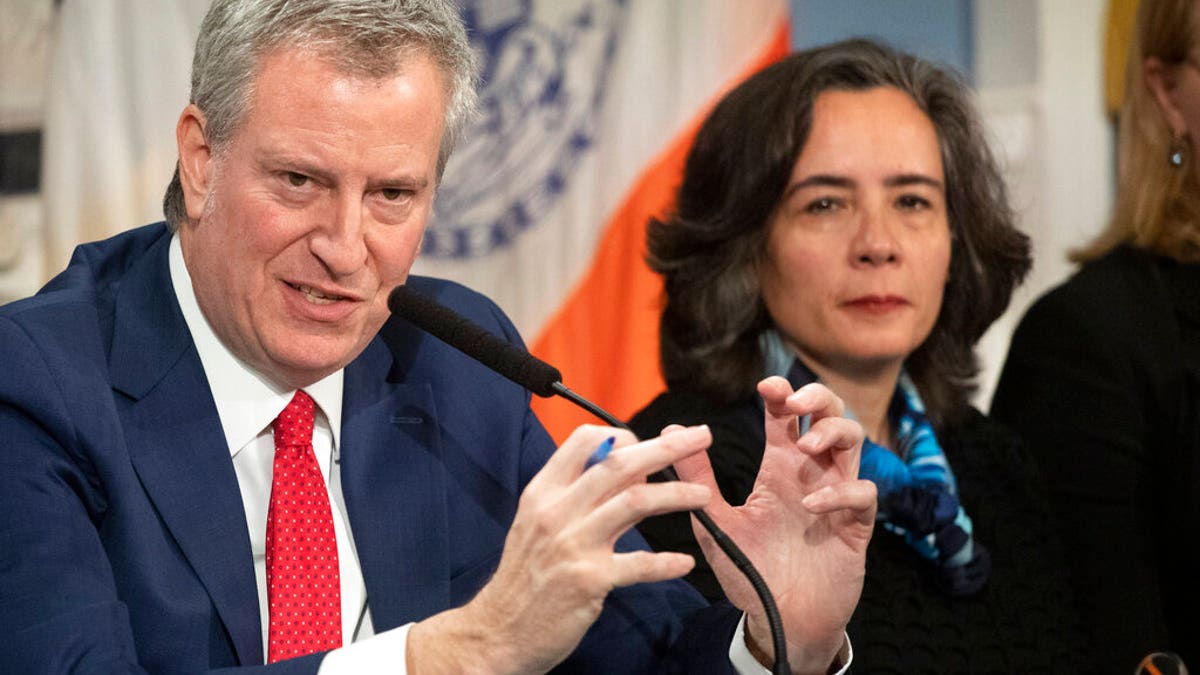
FILE - In this Wednesday, Feb. 26, 2020, file photo, Mayor Bill de Blasio, left, with Dr. Oxiris Barbot, commissioner of the New York City Department of Health and Mental Hygiene, reports on the city's preparedness for the potential spread of the coronavirus in New York. De Blasio implored the federal government Thursday, March 5, to send more coronavirus test kits as the city confirmed two more COVID-19 cases, both in hospitalized patients with no known travel history or personal connections linking them to the virus. (AP Photo/Mark Lennihan, File)
The mayor resisted, believing that closing restaurants, schools and cultural centers would cripple the city’s economy and disproportionately hurt the city's marginalized residents. Instead, he urged people to go out to go to bars, “because we don’t know what the future holds.”
He kept schools open for days despite parents, teachers and members of his own administration urging him to close them.
Amid this inaction, Cuomo took the reins for the state’s response, issuing -- along with the governors of Connecticut and New Jersey -- a tri-state mandate that closed all nonessential businesses and urged residents to stay home. Public schools were also closed.
Hours before the mandate would take effect on March 16, de Blasio took part in his near-daily ritual of an 11-mile drive to the Prospect Park YMCA for a workout.
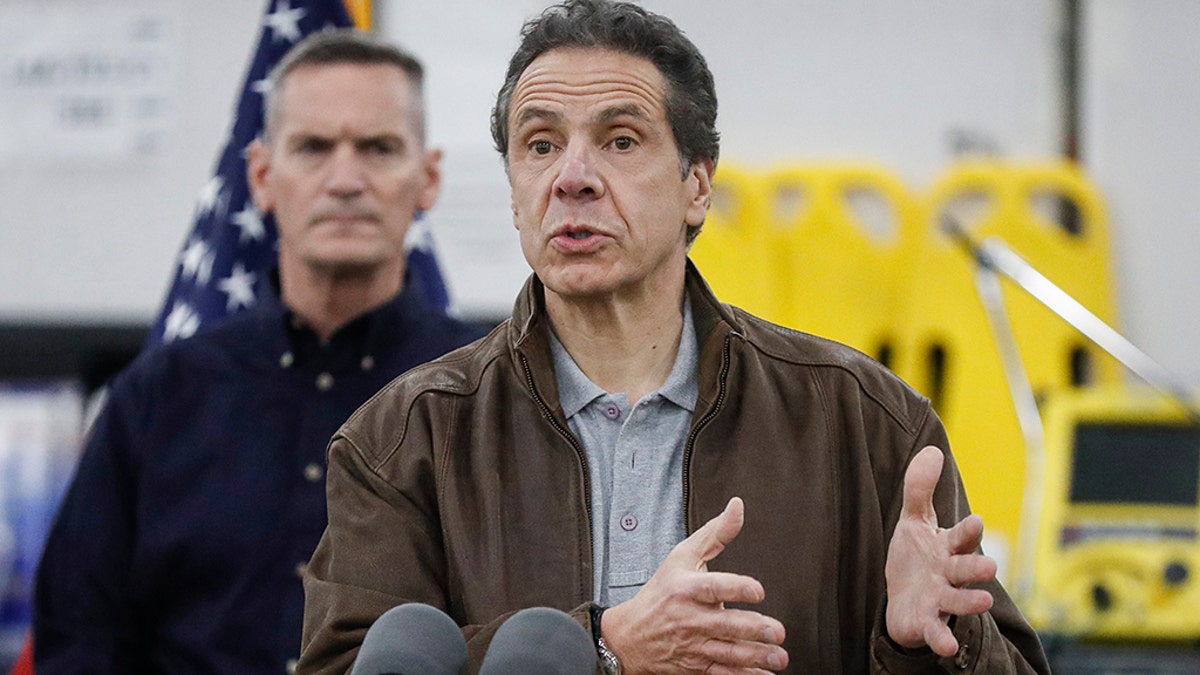
New York Gov. Andrew Cuomo speaks during a news conference alongside the National Guard at the Jacob Javits Center that will house a temporary hospital in response to the COVID-19 outbreak, Monday, March 23, 2020, in New York. (AP Photo/John Minchillo)
The mayor's response to the virus has pitted him against Cuomo, who has been hailed a hero by some.
CLICK HERE TO GET THE FOX NEWS APP
Since the first reported case in New York on March 1, the state has become the epicenter of the virus in the United States, with most of the infections and deaths being reported in New York City.
Earlier this week, de Blasio tried to brush off the criticism of his actions during the outbreak, telling CNN: “We should not be focusing, in my view, on anything looking back on any level of government right now. This is just about how we save lives going forward.”

